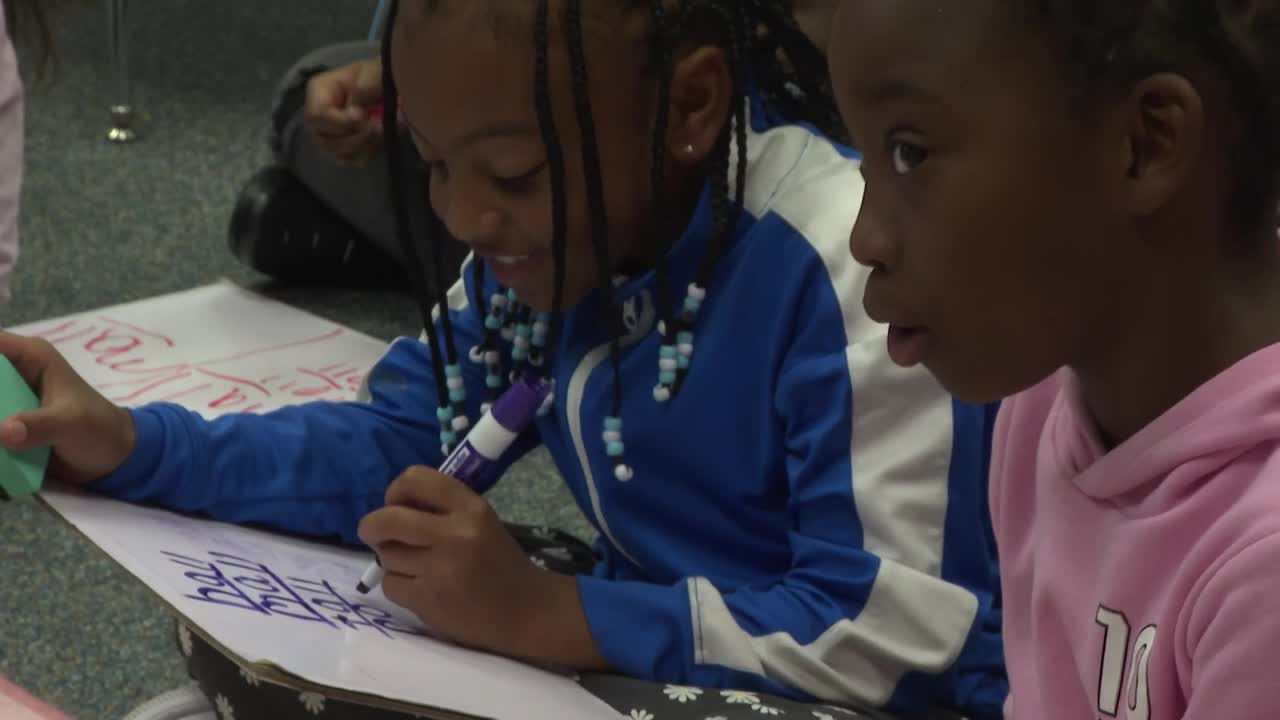OMAHA, Neb. (KMTV) — All students reading on grade level by 2030. That's the goal district wide for Omaha Public Schools, referred to as a "Moonshot". Though it's an ambitious goal, teachers and staff are all on board and reporter Molly Hudson saw first hand that students are too.
BROADCAST TRANSCRIPT:
This is what Keairra Watson's second grade class looks like every morning at the same time.
Kids actively engaged, moving and learning together.
"Structured literacy is helping them to read, but I think it is helping them to love to read, so we will be in the hallways, they will be like like, 'hey, we learned that skill the other day' and being able to point those skills out in books," said Keairra Watson a second grade teacher at King Elementary School.
Saying and blending the sounds of each word even practicing writing them out.
"There is consistency and we know that with consistency you get results," said Glenn E. Mitchell, principal of King Elementary School.
Data shared from the 2022-23 school year, before the moonshot was announced, showed only 38% of third through eighth graders within OPS were proficient in reading and writing.
Molly: "Do you feel like this moonshot goal is achievable?"
Mitchell: "I think that with the work that teachers are doing, the feedback that they give supervisors and myself it makes it much more attainable."
Watson: "I feel like they have prepped us and it would be different if we were just in the classroom just working but everybody is involved in this moonshot helping to reach this goal."
Teachers like Miss Watson were educated last year on the science of reading, through a course at UNO, now implementing the work day by day.
"I walk around, that gives me a second to do a formative assessment to say, 'hey, I need to pull you in small groups we just need to work on those skills', we also progress monitor," Watson said.
The goal: meet all grade level standards by the end of second grade.
"I am just really focused on where we are at and where we are going and I think where we are going is in a really good direction and I know that my students will be ready to read by 2030," Watson said.
Students are encouraged to continue the work at home -- with the hope that the love of reading will grow.




